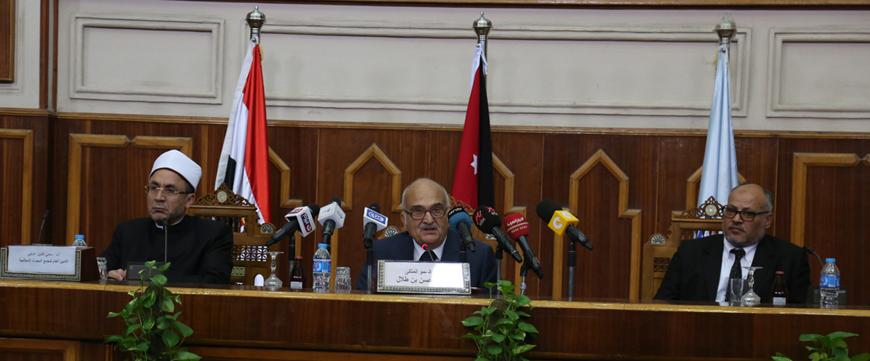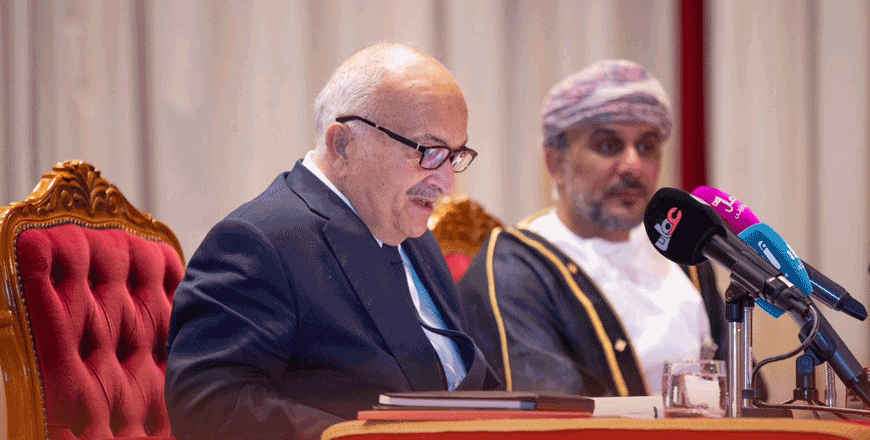You are here
Prince Hassan calls for ‘anthro-policy’, where people matter
By JT - Feb 06,2018 - Last updated at Feb 06,2018
AMMAN — The boundaries — both physical and social — that divide the global wealthy from the economically disadvantaged were at the centre of a lecture by Brazilian senator Cristovam Buarque on Sunday at the Al Hussein Cultural Centre.
The lecture was held under the patronage of HRH Prince Hassan, according to a statement from the Prince’s office.
Buarquespoke about his recent book “The Invisible Mediterranean” in an event hosted by the Royal Institute for Inter-Faith Studies (RIIFS) and the Embassy of Brazil in Amman, in collaboration with the Arab Thought Forum (ATF) and the Jordan Hashemite Charity Organisation.
This cooperation was made possible by the sponsorship of the Arab-Iberian-American Divan for Thought and Cultural Change, a platform dedicated to promoting dialogue between the Arab and the Ibero-American world and enhancing collaboration at the academic, social, and cultural level. Senator Buarque’s lecture was moderated by Shaden Khallaf, senior policy adviser for the MENA Bureau,UNHCR, the statement said.
In his remarks, Prince Hasssan commended Senator Buarque for his role as a staunch defender of education in the global arena. Recognising the importance of the senator’s remarks, the Prince noted that displacement worldwide has two contexts: forced displacement and economic displacement.
Looking forward to Brazil and Jordan’s further cooperation at the 8th World Water Forum, the Prince proposed the formation of a working group to study what was heard at the lecture and present a projection at the forum, according to the statement.
The Prince said that “crises do not read maps; our region cannot solve any problems on the basis of binary agreement” and emphasised that water and education are supranational issues. Prince Hassan called for an “anthro-policy”: a policy where people matter. “In our ‘WhatsApps’, Facebook, and other social media, we need to build social conscience, he added.
Baurque explained the “Golden Curtain”, the invisible boundary or “Mediterranean” which exists inside every country separating the rich and the poor.
He proposed that this curtain divides the world into two groups: “Those who are within the golden curtain and form the international first world of the wealthy and those who are outside the curtain, forming the social gulag of the excluded poor.”
The senator’s proposals to mitigate these “thousand Mediterraneans” make his “Social Global ‘Marshall’ Plan”, which includes conditional money transfers, microcredit programmes, medical assistance and sanitation programmes, the goals of which are to create a world in which “no one needs to move from his country in order to survive, only to contribute by choice”.
Related Articles
AMMAN — Now, more than ever, the efforts of reformists are needed to protect Islam from being abused by “the misleading and the misled” to j
AMMAN — HRH Prince Hassan, president of the Arab Thought Forum, on Friday concluded a working visit to Oman.During his visit, the prince met
AMMAN — HRH Prince Hassan, president of the Arab Thought Forum (ATF) on Sunday attended a lecture titled “Empowerment and Power Delegation f













